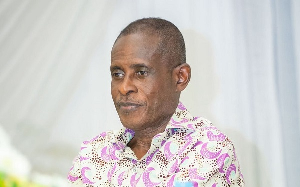Infrastructure and roads are the most frequently cited problems that Ghanaians want the government to address, a new Afrobarometer survey indicates.
For the first time since 2002, infrastructure/roads tops the list of citizens’ priority problems, beating out unemployment.
Citizens’ ranking of their most important problems is fairly consistent regardless of respondents’ region, age, or urban-rural location, but the groups’ relative emphasis on these problems varies.
Concerns about infrastructure and roads are highest in three of the newly created regions – Bono East, Oti, and North East – and lowest in Greater Accra and Upper East. Older and rural residents place a higher premium on infrastructure and roads, while youth and urbanites prioritize unemployment.
The survey also shows that only a few Ghanaians say government has done “a lot” or “somewhat” in addressing their most important problems since it assumed office in January 2017.
Government’s 2020 budget has earmarked GH¢9.3 billion for infrastructure projects. These survey findings are expected to inform Parliament’s current debate on the budget statement, and provide a basis for Parliament and citizens to monitor government’s disbursement of the funds allocated for infrastructure projects to ensure that citizens’ aspirations are met.
Key findings
Six in 10 Ghanaians (59%) cite infrastructure/roads among the first three problems they want government to address. It is followed by unemployment (39%), education (38%), and health (27%). For the first time since 2002, infrastructure/roads tops the list of most important problems, knocking unemployment from its usual No. 1 spot on the list.

Concerns about infrastructure and roads are highest in Bono East (88%), Oti (75%), and North East (72%) regions; fewer than half of residents in Greater Accra, Upper East, Savannah, and Eastern regions cite this problem.

Concerns about infrastructure and roads increase with age (cited by 65% of citizens aged 56 and above, compared to 57%-58% among younger cohorts). Young adults are more likely than the elderly to cite unemployment (14-percentage-point difference) and education (5-point difference).

Rural residents are more likely than urbanites to cite infrastructure/roads, water supply, farming, and electricity as their most urgent problems. Urban residents, on the other hand, are 16 percentage points more likely than their rural counterparts to be concerned about unemployment and twice as likely to cite corruption and crime/security.

Only one in six Ghanaians (17%) say government has done “a lot” or “somewhat” in addressing their most important problems since it assumed office in January 2017.
Afrobarometer surveys
Afrobarometer heads a pan-African, nonpartisan research network that conducts public attitude surveys on democracy, governance, economic conditions, and related issues across Africa. Seven rounds of surveys were completed in up to 38 countries between 1999 and 2018.
Round 8 surveys are planned in at least 35 countries in 2019/2020. Afrobarometer conducts face-to-face interviews in the language of the respondent’s choice with nationally representative samples.
The Afrobarometer team in Ghana, led by the Ghana Center for Democratic Development (CDD-Ghana), interviewed 2,400 adult Ghanaians between 16 September and 3 October 2019. A sample of this size yields country-level results with a margin of error of +/-2 percentage points at a 95% confidence level. Previous surveys were conducted in Ghana in 1999, 2002, 2005, 2008, 2012, 2014, and 2017.
General News of Friday, 22 November 2019
Source: Afrobarometer
Infrastructure, roads are Ghanaians’ most important problems - Afrobarometer study
Opinions












